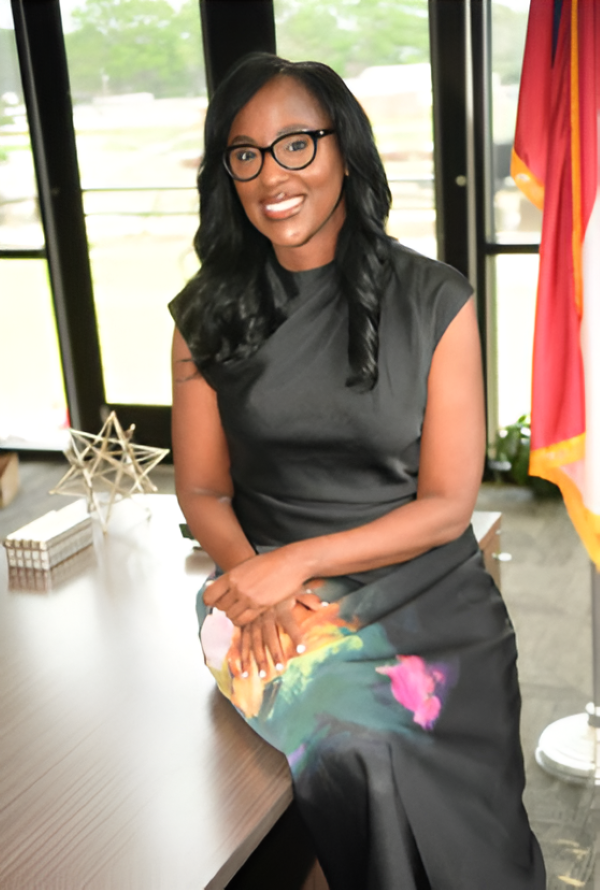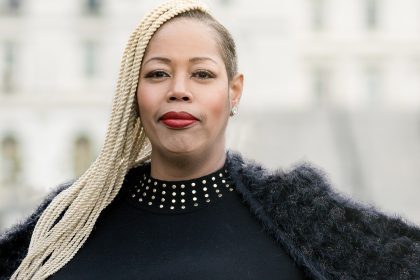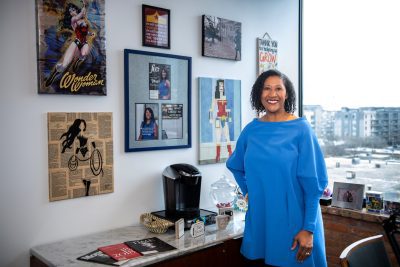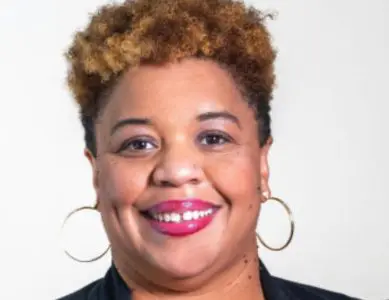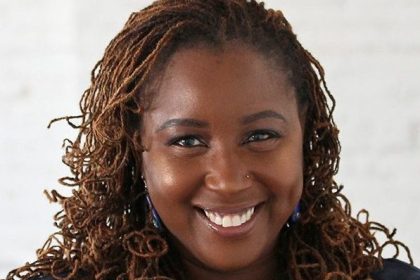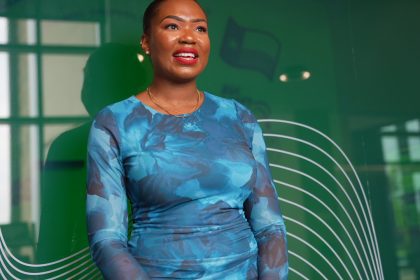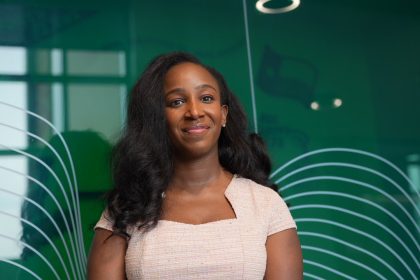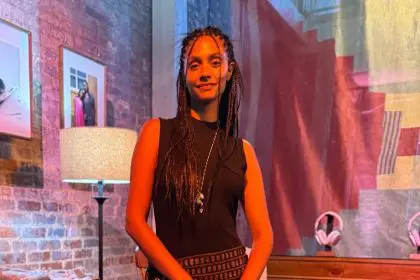Dr. Donya L. Sartor has spent more than two decades building deep roots in Jonesboro, Ga., transforming from an educator with a passion for community service into the city’s mayor. Her journey from the classroom to city hall reflects a career dedicated to public service, marked by more than 25 years in education and a doctoral degree from Georgia State University, complementing her undergraduate work at Emory University and master’s degree from Clark Atlanta University.
Long before she took office in 2023, Sartor established herself as a community advocate through initiatives that directly addressed residents’ needs. Her annual school supply giveaway, the Adopt-A-Senior Citizen for the Holidays program developed with the Jonesboro Police Department, and the city’s first Juneteenth celebration demonstrate her commitment to inclusive community building. Her collaborative approach extends to partnerships with organizations like the Atlanta Food Bank, Clayton County Board of Health and Clayton County Public Schools, facilitating essential services from food distribution to housing assistance.
As mayor, Sartor envisions a government that prioritizes collaboration over bureaucracy, working to decrease unnecessary spending while expanding citizen engagement and public safety. Her policy agenda includes diversified housing options, expanded internet access, and environmental protections through green space ordinances and infrastructure improvements like sidewalks and bike lanes.
Recognized with the Carl G. Rhodenizer Community Service Award from the Clayton County Chamber of Commerce in 2022, Sartor continues to serve on multiple boards including Arts Clayton and the Georgia Municipal Association’s Equity and Inclusion Council, while maintaining her commitment to Delta Sigma Theta Sorority and the Atlanta Southern Crescent Rotary Club.
In this conversation, Sartor reflects on her journey to leadership, the unique challenges facing Black women in elected office and her vision for creating communities where everyone can show up as their authentic selves.
Why did you choose to pursue leadership and eventually politics?
For me, it was just natural, and I’m not just saying this because it’s me, and I’m trying to impress anybody. I say this in the humblest of sense. But even like I was that little girl in kindergarten that got sent by the teacher. And then, finally, I had the right teacher that took that chatty stuff and groomed it into a leader. I was really fortunate to have teachers and parents that kind of facilitated this really bossy, energetic, ambitious little girl, and it kind of always carried me through high school.
Now I wasn’t like class president or anything, but I was always that one said, “Hey, y’all want to do this? Let’s galvanize, let’s get it done.” And it was kind of natural for me to kind of go into politics because I didn’t look at it like politics. I looked at it as just the opportunity seriously to serve my community, which is something I’ve already done. It’s just a different platform that I could serve.
You’re part of a growing group of Black women mayors leading major cities. What are the three big priorities you see that you all have in common?
I think all of us one thing that we have in common. Let me just say this. I’m not sure if this is one of the three, but I can tell you that being respected in this position is something that whenever I talk to Black female leaders because they’re still acting like, we’re new to the game, in this, and we’re small in number, and it hasn’t always been as many of us across the years. All of us, when we meet and we convene and we talk, we talk about how different our story is, as far as, like garnering respect. Now we get the votes, and we have the respect of the constituents.
But it’s when we go to the State Capitol, when we go to the National Capitol, when we got to speak in other rooms that we’re all still having to not necessarily beat our chest, but having to show our credentials and make sure that we’re respected in our roles. That’s something that we find common between it.
Two, we all want to lead in an environment where it’s not just highlighting black women. But we’re all trying to create these environments policies, procedures that creates an inclusive environment that, those that have not been able to do business with our cities, they’re now able to do it.
And again, that doesn’t exclude anybody, but it just includes everybody and we all have that platform. Lastly, is just making sure that we leave a legacy, that if we shattered a glass ceiling that we took the time to sweep up the glass, to speak, that the next person comes through has a smoother ride. I’m constantly looking at what can I leave for the next person that comes in, particularly if it’s another Black woman, that she doesn’t have to have it as hard, and I see that level of commitment all the time.
If you were talking to other young women about superpowers, how would you complete this sentence: Take up space because … ?
We’re worthy of it. We are worthy of the spaces that we’re in. And what I mean by that is that we’re just not tokens, the first female or first Black. We are highly qualified, and sometimes you get in this position, and there’s much hype around the first Black or such and such as a Black mayor, that we forget that. No, we’re qualified, and we’re worthy to hold up this space. And I mean, it’s natural.
Sometimes it’s scary, as all get out to be in these positions, and as a result, our natural instinct as women, as nurturers, is to kind of maybe to shy back from this. But no, we’re worthy, and I tell myself every day I am worthy of this position. I am worthy of all the powers bestowed upon me by virtue of this position. I’m constantly telling myself, take up space because you are worthy.
When you were preparing to present yourself to your constituents, what were the first three things that you did to build a team as an organizer?
Well, the good thing about it, my team was already there. Whenever you and most of us, when we step into positions like this, is because we feel confident enough, because we already have a family that says, “Okay, you want to do this? We in. We got friends, we’re in. We got sororities, we’re in.” For me, I already had the support structure. I know that I have people that I’ve worked with, that I’ve helped, that have helped me along the way.
That was the easy part, it was just, “Hey, I’m running for mayor,” and everybody was like, “Okay, what’s next?” For me, it was having that support structure my whole life. My life hasn’t been like a bed of roses, but I can’t think of a moment that I have not had army of people. Maybe a small battalion supported me, and not just my family and beyond. And if I ever didn’t have support, and I’m honest, it’s because I chose not to have it.
How would you define your leadership style? And how have you taken things that you’ve seen to unlearn as a leader?
Becoming a good leader is an ongoing process. But it’s also something you have to be intentional about. I’m constantly going to conferences, not conferences that talk about politics or municipal government, but just conferences that talk about leadership and how to be a good leader, how to have a growth mindset. I’m constantly feeding myself great leadership information, but not from the perspective of politics. Because if you’re a good leader, it’s going to transcend all of that.
I’m always picking up a book, I’m always reading. If I see a good leader it could be a CEO of a I don’t know a steel making company. But if that leader has some traits and it’s working really well for them, I’m going to take a page out of their notebook.
You also have to be careful. And I’m gonna be real transparent and candid as African American women, people look at us and I can say something and say it a certain way, and it’s perceived one way, but someone else that is a different gender or a different color won’t be perceived the same way, I can walk in a room, and what’s going to happen is the sisters going to cheer me and cheer me on and say I’m passionate.
But then there’s another crowd of people that’s going to say, “Oh, she’s an angry Black woman,” I understand my leadership style is perceived from a person’s perspective of themselves. Not much of what I display, and that doesn’t mean I can go around here hollering, screaming at people. No, I’ve toned that down. It’s a learning process. But I also realize, no matter how hard I work on being a good leader, there’s always going to be a group, not just a single person that looks at that from their perspective and their experiences and label it something totally different.
How have you built up emotional muscle and what you would call emotional and intellectual capital?
Let’s talk about the emotional. We just came out of May with this national Mental Health month. I have a therapist. I’m not going to struggle alone, and it took me a long time to get to that. I wish I had jumped into this idea of talking to someone, whether it’s clinical or family therapist or a life coach years ago, and I want to say that, not just to black women. But we got to move past, particularly the black race, this stigma of getting psychiatric or mental health when we need it.
Once I moved past that and realized like, “Hey, if you’re really going to do well, and not only do well in that moment, but if you’re going to have the stamina to stay at this, you’re going to have to find some coping strategies,” and that’s what I did. I invested in someone that I speak with regularly, that if I have a meeting that’s anxiety provoking, I’ll meet with them and say, “Hey, let me run this by you.
What are some tactics?” And we do some very specific intentional things to get me through council meetings, and you have to be that way you can’t be ashamed of, and when I speak a lot of times, I’ll mention that, I struggled with clinical depression. I struggle with clinical anxiety.
But I’m still able to perform and do well, and when I say that I can look in the audience and see women particularly just kind of take a deep breath like, “Okay, what I’m experiencing, what I’m dealing with is okay.
I’m not less of a woman or less of a human or less of a mother or less of a mayor because of it.” And people have come out afterwards and say, “Thank you much for being transparent.” They’ll either say “I’ve been dealing with that,” or “I’ve been working with my daughter on that,” and to hear you say that has been a struggle with you over time, was really encouraging, that mental stamina is important, and it may not be the same route for everyone, but that’s the route I had to take.
How important is rest and taking care of yourself for leaders?
From a physical aspect, it’s everything. And if you don’t know what the numbers say, if you don’t know what medicine, modern medical world says we need rest, you can call it whatever you want to. You can take whatever shot, whatever vitamin, I don’t care what, our body needs rest. Our mind heals through rest, and for me, sometimes I go to bed with much on my mind, even like, I said, being intentional, I have a journal I write down. I just bleed my brain out at night, and I put it up, and then I can sleep better.
But rest is vitally important, even at the cellular level, like your body won’t recover from a wound, or trauma, even without rest. It’s incredibly important.
Even with that I share a strategy, I add, in three consecutive days of rest every three months, and it’s not a weekend. On my calendar, if you were to look out until the end of the year, you’ll see a Monday, Tuesday, Wednesday /Wednesday, Thursday, Friday. Those are my days now. I don’t call them vacation because I may not go anywhere, but I don’t come to this office. I do very limited social media during that time.
My email has a out of office that they can contact somewhere else. But I try to be totally present for myself, and that’s three days every three months. I would love three days every month, and maybe I’ll get to that. But it has been one. I started it in 2025 this year, and I’ve had six months.
Well, I haven’t had my June, I’ve had five months of this three-day reset rest period and it’s been amazing. The first one was a little hard. But then I realized, “Okay, what, I got to take social media off,” I would delete the apps from my phone, that helped.
By the third month I had it kind of down pat. I had groceries, because sometimes I wouldn’t want to go eat. I just wanted to stay in the house. Other times I set a Spa appointment. I scheduled dinner with myself, and that time might be time with a colleague that I hadn’t met, or something. But it’s as far away from this political world in any other professional world that I can get, and it’s been great.
Can you describe two of your superpowers?
The first one is I’m forgiving, and that is an amazing superpower to have as a human. I haven’t always had it. But the healing that came by forgiving was amazing. And when I talked about that depression and everything, and coming out of it from a spiritual aspect, God clearly said that, “Hey! You gotta forgive people as readily as I forgive you, and as readily as I want someone to forgive me.” That is a superpower, because we hold grudges. It might be somebody you mad about that.
You haven’t forgive, one of my superpowers. I’m going to forgive you. We’re going to talk it out. We’re going to hash it out, and then my favorite line is “You hungry? You want to go eat,” and that’s my way of saying we done. I have learned coming through Covid, losing my mother suddenly as Covid, going through a medical crisis myself, that when your grandma used to say, “Life is too short,” it really is. And so one of my superpowers is forgiveness.
And I think my other superpower is just the level of innovativeness that I’ve always had. I could take lemons and not only make lemonade, but lemon meringue pie, lemon, custard, lemon, herb, chicken, and then replant the lemon, and then watch the lemon tree grow all over again. Just being very innovative from a younger child, and I thank my parents for just always encouraging that. My father wasn’t a college graduate. My mother got her bachelor’s when I got my master’s when I encouraged her to go back.
But I had these parents that may not have had, like the degrees on the wall, but they knew what it took to be successful in the world, and the biggest thing that they did not tell every parent raise your child that they can do anything they want to, and that’s how my parents like I never could come to them, and they’d be like, “Oh, here you go again! Well, how are you going to do that, Donya?” No matter what I said, they was like, “Okay, let’s sit back and watch.” And even though they probably should have had some counseling and some therapy, and there’s some trauma that they needed to work through.
They knew enough, thank God, to make sure that whatever you want to do is yours, and my mother never saw me be mayor. She saw me run for a council and be the second African American to ever sit on the council in city of Jonesboro, and she was incredibly proud of that. And I know, like she’s in heaven like. “Look!” If I had told her “Mom, I want to run for Mayor,” she probably would have been like, “Okay, what? What we gotta do now?”
When you think about gardening in society, what are the flowers that you hope your time as mayor will grow for future generations?
I just hope flowers of beauty would grow. And let me say this like beautiful flowers, and what I mean by beautiful is not just a physical appearance, but this whole idea is that we can show up authentically as ourselves. When I think of a flower I think of, buy like a batch of seeds, and you don’t know when you just put them in there, and it’s like a wildfire mix, and you don’t know like, “Oh, this is going to be a sunflower, and this is going to be a peony, and this is going to be a daisy.” I’m a gardener, I know all of those things.
You put them in there, and you just have to kind of watch to see what comes up, but no matter what comes up, and when it comes up it’s always beautiful when you cut it and put it together in a larger bouquet. I hope that I’ve put seeds in ground that you can show up as your authentic self, and still be just as beautiful and different than the flower next to you, and you both can shine, and if we cut them all and put them together, then collectively, we’re something beautiful.
But this whole idea of competition, and this flower, and, no. And if you pluck a weed the right way and put it among flowers. It’s the greatest camouflage ever. And why, I say that to say when sisters, when we’re not at our best, if I stand along, somebody that’s doing really well, and they embrace me. Then we become one and the same, and you don’t see the thorns or the weeds, or anything, and what I’m bringing, and I’ve enjoyed that in my role as mayor, and the support that I’ve received for other elected officials.
What would you encourage young women at HBCUs to understand about their superpowers and how they should show up in the world?
Going to HBCU, and I didn’t go as an undergrad. I went in my master’s program and I realized that I did miss experience growing up. I mean, it’s undeniable. I had a great education at Emory. I don’t trade it for the world, but the first chance I could get to a historically Black college and university, I ran straight to it to get my master’s, Sometimes, being around us can be encouraging. When I got to my Master’s Degree and I had Black teachers. I didn’t have Black teachers at Emory. I had Black teachers at Clark, and I would encourage them to hone your superpower by those people that are around you.
Like, you might think that, “Hey? I’m creative.” But maybe it’s not at the superpower level. Go find someone else at a level of creativity that you want to be at and work up under them, reach out to them, and I say that I’ll give you a quick story. I was at Clark taking a statistics class, and a teacher came in Dr. Gwen Benson, and she was a sharp sister. Now, I mean, I went even shopping beyond target or Macy’s at that point. But this sister was sharp. She on the suit that I knew came from Neiman’s.
I mean she was just, and she taught this class, and afterwards she was approachable, and I asked her, I said, “Hey, where’d you get your doctorate from?” And she said, “Georgia state,” she said, she works there also. I said, “I want to get my PhD but I’m kind of struggling in my GRE scores,” and she told me exactly what to do.
She said, “Do this, this, this and this, and then, when they, if they deny you, ask for a meeting with the Dean, and tell them to give you conditional enrollment for a year, and if you maintain a 4.0. Will he change your enrollment to conditional?” She didn’t have to give me that, but that was her superpower of giving, and I followed it.
Five years later, I got a PhD from Georgia State that started with conditional enrollment. I would tell them to look at somebody that’s in the lane of what you want your superpower to be, and I pray that there’s someone ahead of you, ahead of the game in that space that will take time for you and help you, and I think every day as Black women, we’re doing a better job at that.
Video interview with jessica Care moore coming soon. Check back shortly to watch this exclusive conversation.

